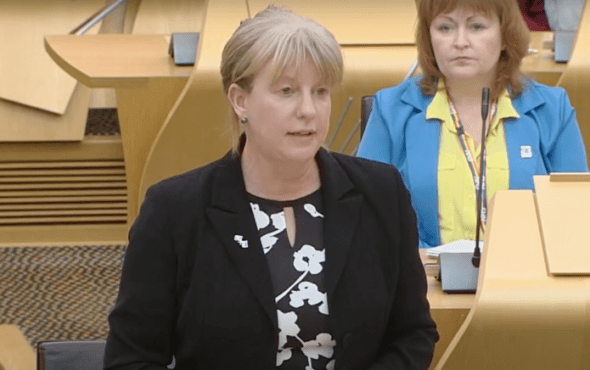
The Scottish government has introduced plans to “improve” the process of how trans people apply for a Gender Recognition Certificate (GRC).
The Scottish Gender Recognition Reform Bill strives to make it easier for trans people to change their gender identity and has reduced the minimum age of applicants from 18 to 16.
Scotland’s bill proposes to amend the Gender Recognition Act 2004 and introduce new criteria for applicants who wish to obtain a GRC, which is required to be legally recognised as their changed gender.
Once an individual has a GRC they are eligible to apply for a new birth certificate.
Currently, trans people must be 18 or over to apply to a UK Gender Recognition Panel to acquire a GRC.
Alongside this, applications are required to submit medication documentation with a proven diagnosis of gender dysphoria (discomfort with your birth gender), and proof that you have “lived” in your acquired gender for at least 2 years.
The Gender Recognition Reform Bill proposed by Scotland would no longer require individuals to provide medical reports or evidence.
However, applicants will have to submit a legally binding declaration that they intend to live permanently in their acquired gender.
Applications will be sent to the Registrar General for Scotland, rather than the Gender Recognition Panel, a UK Tribunal, and will have to undertake a three month reflection period.
New reform regulations state individuals must stay in their acquired gender for a minimum of three months and a false statutory declaration will be considered a criminal offence, with a potential punishment of up to two years’ imprisonment.
Social Justice Secretary Shona Robison said trans men and women are among “the most stigmatised in our society” and the existing process for changing gender identity is “intrusive, medicalised and bureaucratic”.
Robison added: “It is about simplifying and improving the process for a trans person to gain legal recognition, which has been a right for 18 years.
“Our support for trans rights does not conflict with our continued strong commitment to uphold the rights and protections that women and girls currently have under the 2010 Equality Act. This Bill makes no changes to that Act.
“The Scottish Government has always been keen to seek consensus where possible and to work to support respectful debate. That will remain a guiding principle as the Bill progresses through Parliament.”
In 2017, almost two thirds (60%) of respondents to the Scottish Government’s 2017 survey on the principles of gender recognition reform were in favour of introducing a statutory declaration system for legal gender recognition.
News of Scotland’s gender reform has been praised with many grateful for the reformation.
However, critics of the Gender Recognition Reform (Scotland) Bill have circulated the #ShameOnScotland hashtag to share transphobia online.
Supporters of the bill have expressed frustration at the hateful response to legislation which has been branded “an important step forwards”.
“Clicked the #ShameOnScotland trend to see what we’ve done to offend folk, wished I hadn’t,” one user tweeted.” Literally just raging transphobes having aneurysms because Scottish government looks likely to pass a bill making self ID easier for trans/nb people. FUCK YOU, TRANSPHOBES.”
“The bigots and wingnuts trying to make life hard for a marginalized minority demographic are the only #ShameOnScotland. Womens rights are for all women,” another user tweeted in support of the Scottish bill.
The bigots and wingnuts trying to make life hard for a marginalized minority demographic are the only #ShameOnScotland.
Womens rights are for all women.
— Sonya Mathews 🐢 (@MathewsSonya) March 4, 2022
You can watch the ministerial statement of the Gender Recognition Reform (Scotland) Bill here or below.



